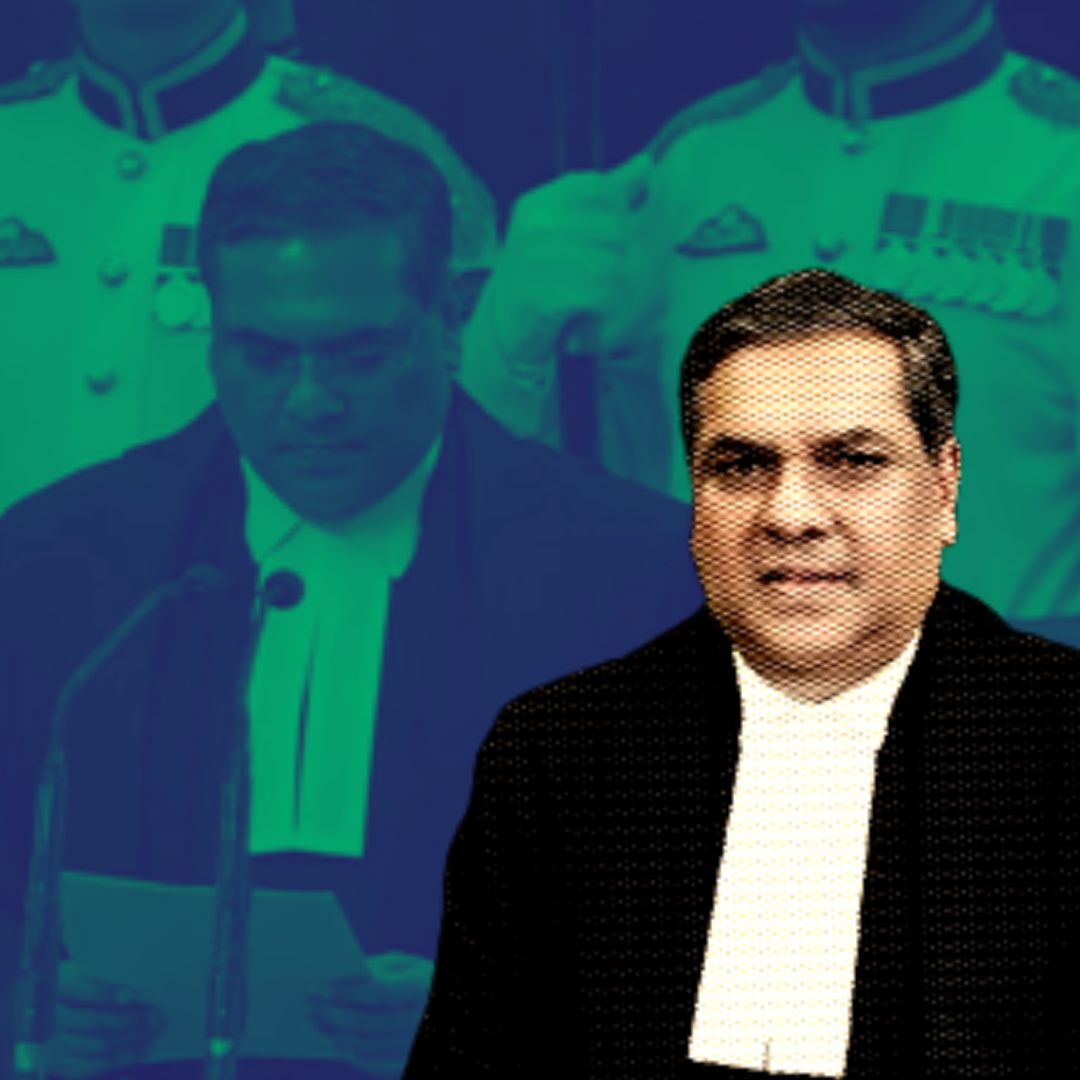Justice Sanjiv Khanna took the oath as the 51st Chief Justice of India on November 11, 2024, succeeding D.Y. Chandrachud. Administered by President Droupadi Murmu, Khanna’s term will last until May 13, 2025. A seasoned legal professional, he is known for significant rulings on electoral reforms and the abrogation of Article 370. His appointment comes at a critical time for the Indian judiciary, with expectations for him to address key legal challenges.
Who Is Sanjiv Khanna?
Birthdate: Born on May 14, 1960.
Legal Career: Enrolled as an advocate with the Bar Council of Delhi in 1983; practised in constitutional law, taxation, arbitration, and environmental law.
Judicial Appointments:
– Appointed as an Additional Judge of the Delhi High Court on June 24, 2005.
– Became a permanent judge on February 20, 2006.
– Elevated to the Supreme Court on January 18, 2019.
Family Background: Nephew of former Supreme Court judge Hans Raj Khanna, known for his dissent in the ADM Jabalpur case during the Emergency.
Positions Held: Served as Executive Chairman of the National Legal Services Authority (NALSA) and held roles in various legal institutions.
Justice Sanjiv Khanna: A Legal Luminary
Justice Sanjiv Khanna has made substantial contributions to Indian jurisprudence throughout his career. He has authored numerous landmark judgments, including:
Abrogation of Article 370: Authored a concurring opinion in a landmark ruling that upheld the abrogation of Article 370, stating it aligned with India’s federal structure.
Electoral Bond Scheme: Part of a five-judge bench that declared the electoral bond scheme unconstitutional, emphasising transparency in political funding.
Interim Bail for Arvind Kejriwal: Granted interim bail to former Delhi Chief Minister Arvind Kejriwal during an election campaign.
Judicial Leadership: Held roles such as Senior Standing Counsel for the Income Tax Department and Standing Counsel for the National Capital Territory of Delhi.
Background of Judicial Transition
Justice Khanna steps into the role following the retirement of D.Y. Chandrachud, who served nearly two years as CJI. This transition occurs at a time when the Indian judiciary faces pressing challenges, including calls for reform and increased transparency. Khanna’s tenure is anticipated to focus on maintaining judicial independence while addressing critical issues such as access to justice and legal aid.
The Logical Indian’s Perspective
The Logical Indian views Justice Sanjiv Khanna’s appointment as a significant opportunity for positive change within the Indian judiciary. As he embarks on this crucial role, we hope he prioritises judicial reforms that enhance transparency and accessibility for all citizens.
How do you think Justice Khanna can address the challenges facing the judiciary during his brief tenure? Share your thoughts with us!











